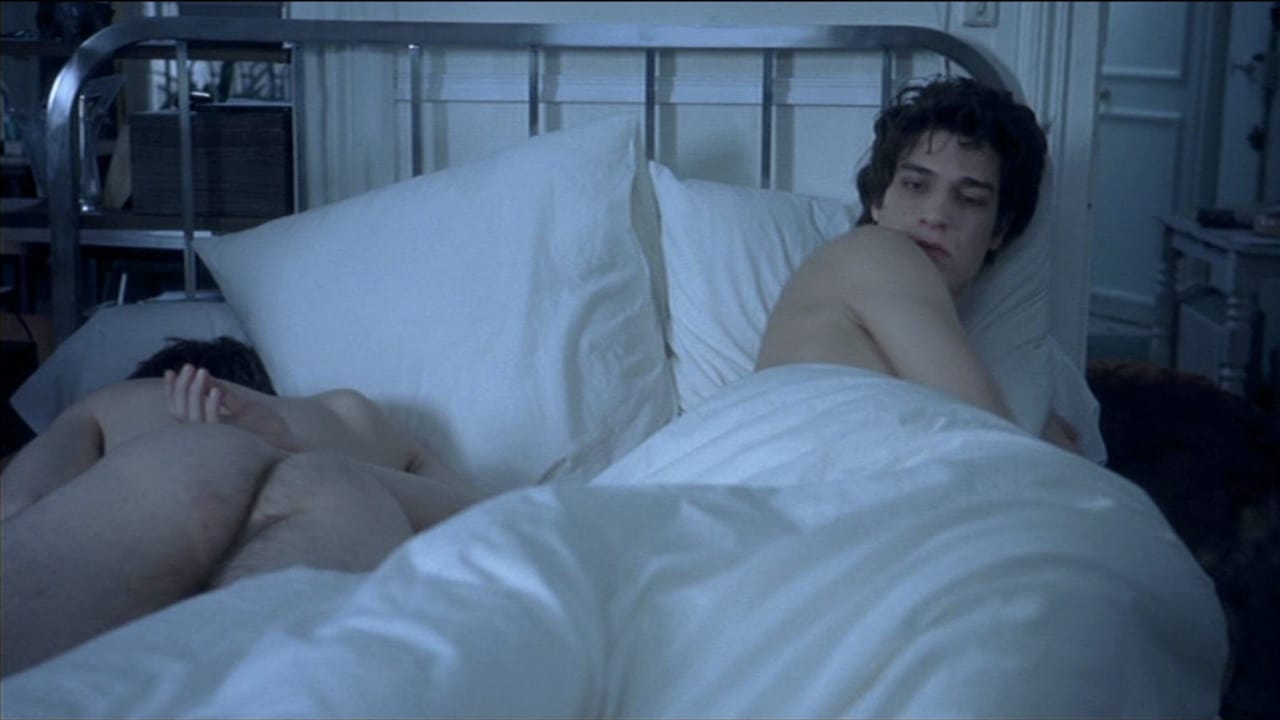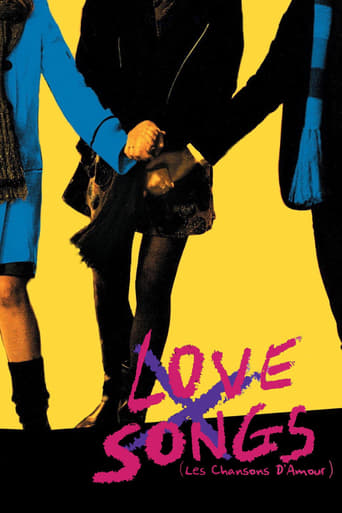

How to put into words a film with this sensorial density? It's clearly not the simplest task. "Congratulations Christophe Honoré" could be a good approach, maybe the best.As a Portuguese, a traditional nation in the "European standards", I may say that this film surpasses my bounds when speaking of, let's say, "relational experimentalism". Even so, I found it astoundingly beautiful and I guess that picking-up the gay issue would be to diminish a film about life and what we make of it in our nowadays living.To have lived in France for over a year, eventually helped me out to remark some interesting French particularities in the characters.I found the humor in this film to be typically French. There's a scene were Ismael is Wrapping a pillow making a baby of it, asking everybody in the room to remain silent not to wake up the child that had just gotten asleep. Then, unexpectedly, he throws the "baby" right out of the window as he gets tired of the staging. This kind of uncompromising performances, risking the ridiculous, were undoubtedly a "déjà vu" for me.The music is also a key element in the film and gives it a Parisian melancholical aura. The music is often used by 2 or more characters in the form of a dialog where they show their feelings and points of view. As they sing, the scenes are incredible well filmed either outdoor, in the endless avenues of Paris, or indoor in the cosiness of a warm bed in a cold winter night. Sometimes I felt as I was one of the characters right in the scene.The anguish, the indecision and above all, the solitude are the marking subjects in a film that exposes in a crude manner how individualistic the society is becoming in France, and why not, in Europe.It's a contemporary (timeless?) film about human relationships. In my opinion, the antithesis of the blockbuster cinema: The extravagance is replaced by beauty, the free nudity is replaced by sensuality and the easy laugh is avoided. The dialogs are intelligent, complex and they have ambiguous interpretation.At the end of the movie, a phrase synthesizes it all: "Love me less but for a long time".To assume the compromise revoking the emotional hurricane brought by fleeting relations will bring peace, at last.
... View More*contains minor spoilers after dotted lineI was really reluctant to see another Honoré-Garrel pairing, as the last one I saw (Ma Mère) was seriously awful, to add to it, Les Chansons d'Amour is a musical. Not being a fan of musicals AT ALL, Honoré flawlessly intertwined the singing, the acting, and the plot so well that without the singing, the movie would be totally incomplete (unlike other musicals where it's the obvious song & dance numbers that take away from the film). Another feat of this film, is the new representation of romantic love, between men, something we rarely see in film (if not stereotypical portrayals of gay men). After this film, you leave not seeing it as another "brokeback mountain type gay man's film" but as love between people, regardless of gender. Not uncommon of Honoré or Garrel's work, Les Chansons d'Amour is wrapped around a somewhat "taboo" plot of threesomes and young homosexual love. The overall acting was great, especially Louis Garrel. Garrel plays Ismaël so amazingly charming that you quickly fall in love with him. You begin to feel his pain, to the point where you completely understand why he does everything he does in the film. Not to be out done, Grégoire Leprince-Ringuet, played Erwann so seductively that you almost forget how weirdly obsessive his character is. At times, I found myself teetering back and forth between rooting for Erwann to win his love and for him to fail miserably. The only reason why I gave this film a 9/10 is for minor reasons and annoyance with some of the side-plots of the film. With that said, Les Chansons d'Amour has flown under the radars for too long (completely overshadowed by Brokeback Mountain, not nearly as good as Les Chansons d'Amour) and it would be a bad move to miss out on this fine specimen of cinematic storytelling.----------------------------------------------------------- The dynamic between Ismaël and Erwann is so complicated and unorthodoxly beautiful,that at the end of the film you leave completely unsure if Ismaël really loves Erwann, but you don't really care because you know that for the present moment they need each other, maybe not forever but for the "now".
... View MoreI've been a fan of Louis Garrel ("The Dreamers") and Ludivine Sagnier ("Swimming Pool") for a few years now, so when I heard they were starring in a romance musical, I was really excited. "Les Chansons d'Amour" aka "Love Songs" met, actually exceeded, my expectations. The film is a gorgeous, sometimes poignant and subtly funny look at love and (straight, bisexual, homosexual) relationships in contemporary Paris. Its adorably improvised musical sequences, the beauty of the music and locations, the chemistry of the ensemble cast (Chiara Mastroianni, who looks a lot like her father, the late Marcello Mastroianni, delivers a captivating performance as Sagnier's sister), all add up to the enchanting final result. This is the third film director Christophe Honoré makes with Louis Garrel (after 'Ma Mère' and 'Dans Paris'), and they announced a sequel for 2011. I will definitely check it, but it will be hard to top "Love Songs", since it ended perfectly in my eyes. Whether the sequel will disappoint or not is another story; for now, just enjoy the real gem that these chansons are... "love me less, but love me a long time". 10/10.
... View MoreOne of the most beautiful moving movies I have seen in ages. I had to watch it again again and again.I do not want to give away too much of the story, It starts with a menage a trois in 21 first century Paris. A major event happening at the very beginning and the movie is about how a whole family is coping or rather not coping. Beautiful lyrics great music great acting. It reminded me of Les Parapluies de Cherbourg in some parts. It just blows your mind.Bravo!
... View More